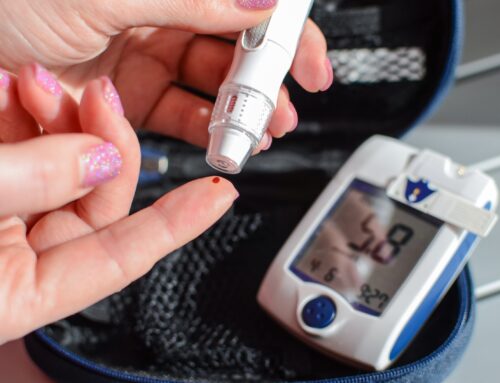Understanding Tirzepatide: A Promising Diabetes Treatment Option
Tirzepatide is a drug developed by Eli and Company, which belongs to a new class of drugs known as dual glucose-dependent insulinotropic peptide (GIP) and glucagon-like peptide-1 (GLP-1) receptor agonists. Tirzepatide works by activating the GIP and GLP-1 receptors, which stimulate insulin secretion and suppress glucagon release. This process leads to a reduction in blood glucose levels.
Tirzepatide also has the potential to aid in weight loss. It works by reducing hunger, increasing feelings of fullness, and slowing down the gastric emptying rate. This results in a decrease in caloric intake, leading to weight loss.
Tirzepatide for Diabetes: How It Works and Its Potential Benefits
Tirzepatide has shown potential in improving glycemic control and aiding weight loss in patients with type 2 diabetes. In a phase 2 clinical trial, Tirzepatide demonstrated a significant reduction in HbA1c levels (a measure of average blood glucose levels over time) compared to placebo and other diabetes medications. Additionally, Tirzepatide resulted in weight loss of up to 13% in patients, which is a significant benefit for those struggling with obesity and diabetes.
Tirzepatide vs Other Diabetes Medications: A Comparison of Effectiveness and Side Effects
Tirzepatide has shown promising results in clinical trials compared to other diabetes medications. For example, in a head-to-head comparison with dulaglutide (a GLP-1 receptor agonist), Tirzepatide resulted in greater weight loss and a higher percentage of patients achieving HbA1c levels below 7%.
However, like any medication, Tirzepatide has potential side effects. The most common side effects reported in clinical trials include gastrointestinal issues such as nausea, vomiting, and diarrhea. Additionally, Tirzepatide has been associated with an increased risk of hypoglycemia (low blood sugar levels) when combined with insulin or insulin secretagogues.
Tirzepatide Dosage and Administration: What You Need to Know
Tirzepatide is currently available as a subcutaneous injection and is administered once a week. The starting dose is 5 mg per week, which can be increased to 10 mg per week after four weeks. After 12 weeks, the dose can be increased to 15 mg per week. It’s important to note that Tirzepatide should not be used in patients with a history of medullary thyroid carcinoma or in patients with multiple endocrine neoplasia syndrome type 2.
The results of the trial were promising, and Tirzepatide is now being considered as a potential treatment option for type 2 diabetes patients.
How Does Tirzepatide Work for Diabetes Treatment?
Tirzepatide works by targeting and binding to three different receptors in the body: the GLP-1, GIP, and glucagon receptors. By activating these receptors, Tirzepatide can stimulate insulin secretion, suppress glucagon secretion, and slow down gastric emptying, which helps to regulate blood sugar levels.
Tirzepatide also has weight loss benefits, as it can reduce appetite and promote satiety, which can lead to a reduction in body weight. In clinical trials, patients taking Tirzepatide experienced an average weight loss of around 10-15% of their initial body weight over a period of 52 weeks.
Tirzepatide Injection Dosage for Diabetes
Tirzepatide is typically administered as a once-weekly injection. The dosage will depend on a patient’s individual needs and medical history, and will be determined by their healthcare provider.
It’s important for patients to follow their healthcare provider’s instructions carefully when administering Tirzepatide injections, and to never adjust their dosage without consulting their healthcare provider first.
Tirzepatide Side Effects for Diabetes Treatment
As with any medication, Tirzepatide can cause side effects in some patients. The most common side effects reported in clinical trials include:
- Nausea
- Vomiting
- Diarrhea
- Abdominal pain
- Decreased appetite
- Fatigue
More serious side effects, such as pancreatitis and thyroid cancer, are rare but possible. Patients should discuss any concerns they have about potential side effects with their healthcare provider before starting treatment with Tirzepatide.
Tirzepatide vs Insulin for Diabetes Management
Tirzepatide is a newer treatment option for diabetes, and it works differently than insulin. While insulin is a hormone that helps to lower blood sugar levels, Tirzepatide targets and activates different receptors in the body to regulate blood sugar levels.
In clinical trials, Tirzepatide has been shown to be more effective than other diabetes medications, including insulin, at reducing blood sugar levels and promoting weight loss. However, it’s important for patients to work closely with their healthcare provider to determine the best treatment plan for their individual needs.
Tirzepatide Clinical Trials for Diabetes
Tirzepatide has been studied in several clinical trials for diabetes treatment. One of the largest trials, known as SURPASS-4, involved over 2,000 patients with type 2 diabetes who were treated with Tirzepatide for 52 weeks.
The results of the trial showed that Tirzepatide was more effective than other diabetes medications at reducing blood sugar levels and promoting weight loss. Patients also reported a lower rate of hypoglycemia (low blood sugar) compared to those taking insulin.
Tirzepatide and Cardiovascular Risk Reduction in Diabetes
In addition to its blood sugar-lowering and weight loss benefits, Tirzepatide has also been shown to reduce the risk of cardiovascular events in patients with type 2 diabetes.
In a recent trial known as SURPASS-CVOT, patients taking Tirzepatide had a lower risk of cardiovascular events, such as heart attack and stroke, compared to those taking a placebo. These findings are promising, and suggest that Tirzepatide could be an important treatment option for patients with both diabetes and cardiovascular disease.
In addition, Tirzepatide has shown to have weight loss benefits in individuals with type 2 diabetes. A study published in The New England Journal of Medicine showed that participants who received a higher dose of Tirzepatide had significant weight loss compared to those on a placebo.
Tirzepatide has also been studied in combination with other diabetes medications such as metformin and insulin. The results showed that Tirzepatide in combination with these medications resulted in improved glycemic control.
However, like any medication, Tirzepatide has potential side effects. Some of the most common side effects include gastrointestinal symptoms such as nausea and vomiting, as well as injection site reactions. It’s important to speak with your healthcare provider about any potential risks and benefits before starting Tirzepatide.
In terms of cost, Tirzepatide is a relatively new medication and may not be covered by all insurance plans. It’s important to check with your insurance provider about coverage and potential out-of-pocket costs.
Overall, Tirzepatide shows promise as a new treatment option for individuals with type 2 diabetes. Its unique mechanism of action, potential weight loss benefits, and ability to improve glycemic control make it an exciting addition to the diabetes treatment landscape. As with any medication, it’s important to have a conversation with your healthcare provider about whether Tirzepatide is right for you.
In conclusion, Tirzepatide is a relatively new medication that shows potential as a treatment option for individuals with type 2 diabetes. Its unique mechanism of action, ability to improve glycemic control, and potential weight loss benefits make it an
Interested in learning more about Tirzepatide as a promising diabetes treatment option? The Alpha Male Clinic can provide you with valuable insights into Tirzepatide’s mechanism of action, potential benefits, dosage, side effects, clinical trial results, and how it compares to other diabetes medications. Schedule a consultation today and discover how Tirzepatide can effectively manage blood sugar levels and aid in weight loss. Don’t miss out on the opportunity to learn more about this promising treatment option – book your consultation with the Alpha Male Clinic now.
Tirzepatide is a dual-action medication that aids in weight loss and blood sugar control. It works by targeting the glucagon-like peptide-1 (GLP-1) and glucose-dependent insulinotropic polypeptide (GIP) receptors, promoting reduced appetite, improved glycemic management, and weight loss.
Tirzepatide is typically prescribed for adults with type 2 diabetes and weight-related health issues. However, it is essential to consult with a healthcare provider to determine if Tirzepatide is the right treatment option for you.
Tirzepatide is administered as a subcutaneous injection, usually once a week. Your healthcare provider will guide you on the proper injection technique and dosage.
It is crucial to discuss your current medications and medical history with your healthcare provider before starting Tirzepatide. Your provider will determine if Tirzepatide can be safely combined with other diabetes medications based on your specific situation.
The time it takes to see results with Tirzepatide can vary between individuals. Some people may notice weight loss and improved blood sugar control within a few weeks, while others may take a few months to achieve significant results.
Some common side effects of Tirzepatide include nausea, vomiting, diarrhea, and constipation. These side effects are usually mild and subside as your body adjusts to the medication. If you experience severe or persistent side effects, consult your healthcare provider.
The duration of Tirzepatide treatment depends on your individual needs, goals, and response to the medication. Your healthcare provider will monitor your progress and adjust your treatment plan as needed.
Tirzepatide is primarily prescribed for individuals with type 2 diabetes and weight-related health issues. However, it is important to consult your healthcare provider to determine if Tirzepatide is suitable for you, even if you do not have diabetes.
It is possible to regain weight after discontinuing Tirzepatide treatment. To maintain long-term weight loss results, it is essential to adopt a healthy lifestyle, including a balanced diet and regular physical activity. Consult your healthcare provider for guidance on maintaining your weight loss after completing your Tirzepatide treatment.
Insurance coverage for Tirzepatide varies depending on your provider and specific plan. It is essential to check with your insurance company to determine your coverage and any out-of-pocket expenses you may incur.




